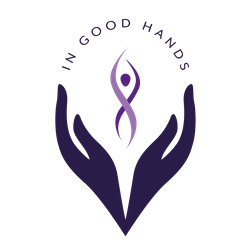GUIDING YOU THROUGH MENOPAUSE 
Guiding through the menopause can be an emotional roller coaster. The menopause or as same people like to refer to it as ‘the change of life’. It is not just about the end of a woman’s reproductive capacity. During this pivotal period it is important to understand the menopausal transition and the complexity of this phase that are largely governed by the hormonal changes occurring in the body.
However, there can be physical, physiological and emotional shifts also. It presents many signs and symptoms and can vary from one individual to another, varying intensity and duration. Not only do hormonal changes cause such effects on women, external factors like genetics, lifestyle habits and overall health shapes the menopause journey
During Perimenopause (pre-menopause), Oestrogen levels fluctuate. While it plays an important role in regulating a women’s reproductive cycle, during the menopause phase Oestrogen levels decline resulting in changes and problematic symptoms during this phase of a women’s life.
What really happens to your body during menopause | Body Stuff with Dr. Jen Gunter
https://www.youtube.com/watch?v=cheqkrcHkrI
THE MAIN SYMPTOMS OF MENOPAUSE
- Hot flushes are the most common symptoms of menopause. Often accompanied by redness of the skin.
- Sleep Disturbances. This can be caused from night sweats therefore sleep can be fragmented and can result in insomnia.
- Mood shifts – anxiety, depression, sadness or irritability can also be experienced particularly if you have disturbed sleep.
- Dryness, itching and discomfort in the urinary and virginal tissue lining.
- Cognitive functioning – this may feel like ‘brain fog’. Memory lapse or difficulty concentrating.
- Joint and muscle pain, headaches and even palpatations. Decreased bone density could lead to Osteoporosis.
While the menopause journey is complex whether there are subtle changes or significant changes for some women it can mark a new opportunity for redefinition, growth and an opportunity for self-reflection. Of course for some women can experience sadness or a sense of loss.
With the right support and life-style factors there are ways to help you through this transition.
HOLISTIC WELL-BEING DURING MENOPAUSE
Integrative approaches such as mindfulness and meditation practices with breathing techniques can be beneficial. Complementary therapies such as Aromatherapy, Reflexology are wonderful treatments. Self-care treatments such as CBT, Hypnotherapy, stress management can all help.
Diet
Nutrition plays a vital role in the management of menopausal symptoms.
Calcium in your diet helps with bone density and to reduce the risk of osteoporosis found in diary products. Vitamin D – the sunshine vitamin helps with the absorption of calcium. Omega-3 fatty acids for your heart health found in fatty fish. Legumes such as chick peas and lentils are nutritional powerhouses.
EXERCISE
It is important to incorporate exercise into your holistic well-being lifestyle. The physical aspects of exercise, increases your cardio health, improves muscle tone and flexibility. Exercise also releases endorphins – the ‘feel good’ hormone that can lift you emotionally and physiological and alleviate anxiety and stress.
Exercise such as walking, swimming, cycling are great forms of exercise and Yoga
In a study from the ‘Journal of Alternative and Complementary medicines’ women reported better overall well-being when using such approaches which connect the mind, body and spirit. Recognising this connection gives a better holistic well-being approach, a better understanding and self-purpose.
As a menopause, holistic well-being coach, I guide you and support you through these changes looking and advising on all aspects of the menopause. As well as being able to offer you treatments to help with the menopause. Together we will put a plan together to help you navigate through the menopause stage.

For more information on treatments to help you through the menopause visit:
